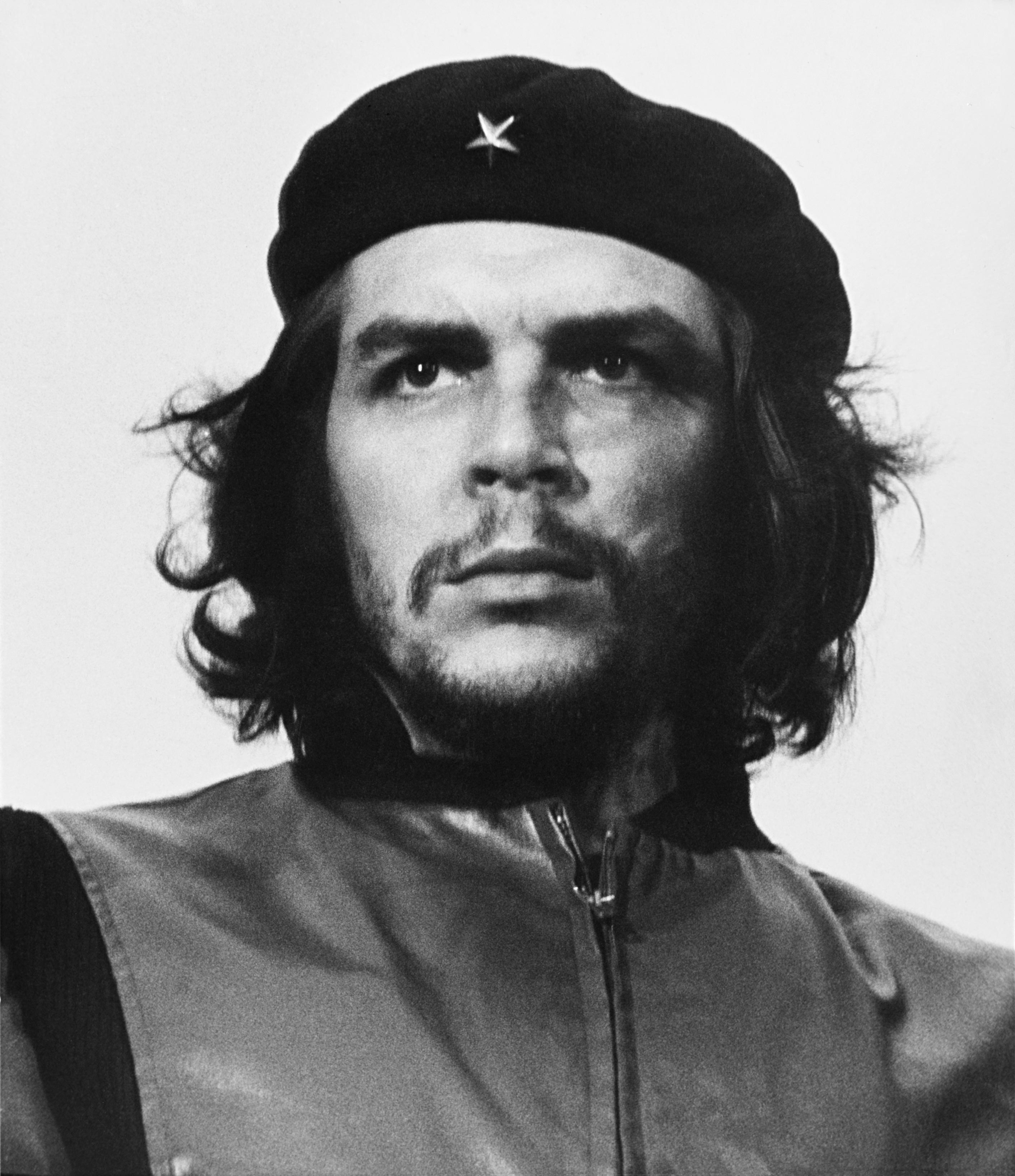
Che Guevara
Ernesto "Che" Guevara (Spanish: [ˈtʃe ɣeˈβaɾa];[3] 14 June 1928[1] – 9 October 1967) was an Argentine Marxist revolutionary, physician, author, guerrilla leader, diplomat, and military theorist. A major figure of the Cuban Revolution, his stylized visage has become a ubiquitous countercultural symbol of rebellion and global insignia in popular culture.[4]
Che Guevara
Office established
Joel Domenech Benítez
Raúl Cepero Bonilla
9 October 1967 (aged 39)
La Higuera, Santa Cruz, Bolivia
Che Guevara Mausoleum, Santa Clara, Cuba
- Argentina
- Cuba
5, including Aleida
- Author
- diplomat
- guerrilla
- physician
- Che
- Fuser
1955–1967
Commanding officer, FAR
As a young medical student, Guevara traveled throughout South America and was radicalized by the poverty, hunger, and disease he witnessed.[5][6] His burgeoning desire to help overturn what he saw as the capitalist exploitation of Latin America by the United States prompted his involvement in Guatemala's social reforms under President Jacobo Árbenz, whose eventual CIA-assisted overthrow at the behest of the United Fruit Company solidified Guevara's political ideology.[5] Later in Mexico City, Guevara met Raúl and Fidel Castro, joined their 26th of July Movement, and sailed to Cuba aboard the yacht Granma with the intention of overthrowing US-backed dictator Fulgencio Batista.[7] Guevara soon rose to prominence among the insurgents, was promoted to second-in-command, and played a pivotal role in the two-year guerrilla campaign that deposed the Batista regime.[8]
After the Cuban Revolution, Guevara played key roles in the new government. These included reviewing the appeals and firing squads for those convicted as war criminals during the revolutionary tribunals,[9] instituting agrarian land reform as minister of industries, helping spearhead a successful nationwide literacy campaign, serving as both president of the National Bank and instructional director for Cuba's armed forces, and traversing the globe as a diplomat on behalf of Cuban socialism. Such positions also allowed him to play a central role in training the militia forces who repelled the Bay of Pigs Invasion,[10] and bringing Soviet nuclear-armed ballistic missiles to Cuba, which preceded the 1962 Cuban Missile Crisis.[11] Additionally, Guevara was a prolific writer and diarist, composing a seminal guerrilla warfare manual, along with a best-selling memoir about his youthful continental motorcycle journey. His experiences and studying of Marxism–Leninism led him to posit that the Third World's underdevelopment and dependence was an intrinsic result of imperialism, neocolonialism, and monopoly capitalism, with the only remedies being proletarian internationalism and world revolution.[12][13] Guevara left Cuba in 1965 to foment continental revolutions across both Africa and South America,[14] first unsuccessfully in Congo-Kinshasa and later in Bolivia, where he was captured by CIA-assisted Bolivian forces and summarily executed.[15]
Guevara remains both a revered and reviled historical figure, polarized in the collective imagination in a multitude of biographies, memoirs, essays, documentaries, songs, and films. As a result of his perceived martyrdom, poetic invocations for class struggle, and desire to create the consciousness of a "new man" driven by moral rather than material incentives,[16] Guevara has evolved into a quintessential icon of various leftist movements. In contrast, his critics on the political right accuse him of promoting authoritarianism and endorsing violence against his political opponents. Despite disagreements on his legacy, Time named him one of the 100 most influential people of the 20th century,[17] while an Alberto Korda photograph of him, titled Guerrillero Heroico, was cited by the Maryland Institute College of Art as "the most famous photograph in the world".[18]
